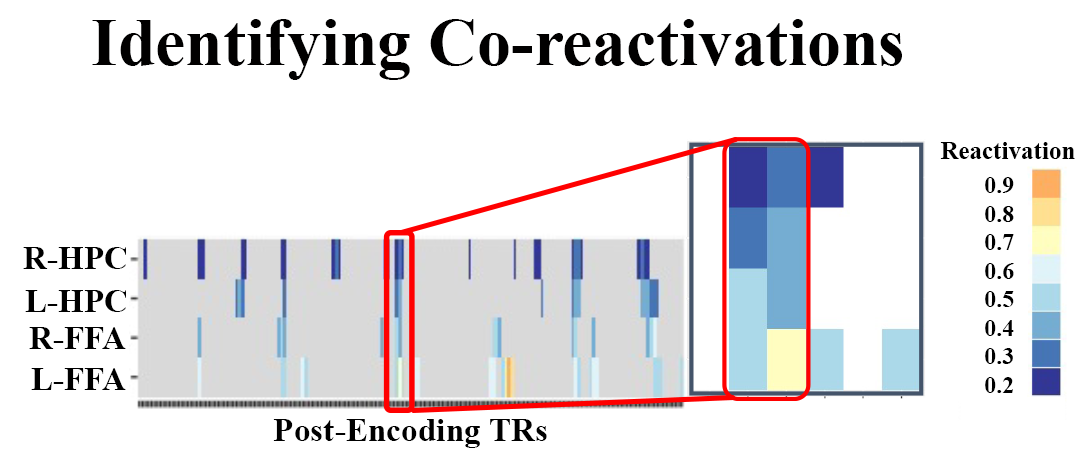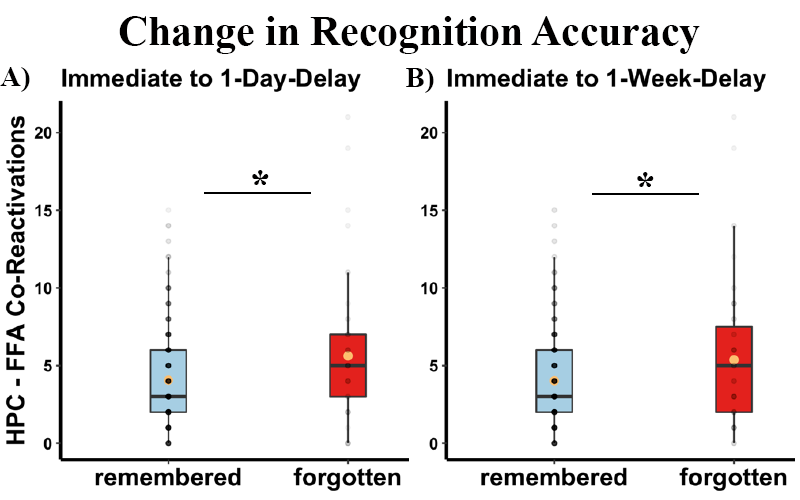How does our brain remember repeated events?
I developed a novel analytical method to track how distinct regions of the human brain co-reactivate specific memories during rest—a process known as neural replay. While animal studies use invasive recordings to show that memory-related regions replay information simultaneously, such analysis has been limited in humans. My approach overcomes this gap by detecting concurrent memory-specific reactivation across multiple brain regions, enabling us to map how networks interact during memory consolidation.
Using this method, we found that these HPC–FFA co-reactivations were associated with trials that were initially correctly recognized immediately after encoding but were later forgotten after 1-day and 1-week. These findings suggest that HPC–FFA co-reactivations may be integrating related events, at the expense of disrupting event-specific details, hence leading to forgetting.
Paper available here.
Using this method, we found that these HPC–FFA co-reactivations were associated with trials that were initially correctly recognized immediately after encoding but were later forgotten after 1-day and 1-week. These findings suggest that HPC–FFA co-reactivations may be integrating related events, at the expense of disrupting event-specific details, hence leading to forgetting.
Paper available here.


